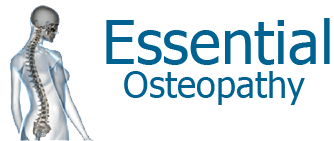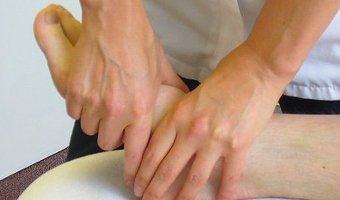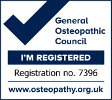Stress and Osteopathy
Many of know what stress is and know that it is detrimental to our health. It raises blood pressure, weakens the immune system and can result in headaches and IBS, but how does it affect our musculo-skeletal system (muscles and joints) and nervous system?
Breathing
When you breathe, do you take long calm breaths or short shallow ones? Many of us breathe shallowly from our upper chest, rather than from the diaphragm. If we’re breathing correctly, as we breathe in our tummy should expand and the diaphragm (the domed muscles under your ribs) should flatten as it contracts and pushes downwards on our abdominal cavity. This downward pressure helps with lymphatic drainage and circulation, stretches our lungs and draws in more air and also helps to massage and push food along the gut.
Digestion
Stress also results in a tightening of the circular sphincter muscles which line the gut which, in turn, restricts the ability for materials to pass along the gut. Gas and matter then builds up behind these restrictions leading to bloating and alternating constipation and diarrhoea and potentially Irritable Bowel Syndrome (IBS).
The nervous system
When you’re stressed the parasympathetic nervous system (part of the autonomic, non-voluntary, nervous systems) is switched off or dulled down together in favour of the sympathetic, fight-or-flight, nervous system, which slows down or halts the action of the reproductive and digestive systems. This happens because, when we perceive a threat, the body needs to focus on responding to the perceived threat with a fight-or-flight response – whether it’s a long or short term stress. Short term adrenaline is released as an appropriate response by the body. The problem is that a lot of us hold on to that perceived threat for a lot longer and continue on to a chronically stressed state. This weakens the immune system and, ultimately, can lead to adrenal fatigue where the adrenal glands become unable to respond, digestion problems like IBS and reproductive issues like infertility.
Posture
You raise your shoulders up to your ears, hunch forward, clench the muscles around your jaw, neck, shoulders, back and arms when you’re stressed. This long term tension requires a lot of energy throughout the day which leads to muscle fatigue and aching.
What’s the answer?
Frankly, we get used to a certain level of stress and the adrenaline ‘hit’ it gives us and find it very difficult to slow down – perhaps by introducing exercise and relaxing things like reading and meditation into our lives. The key to effective stress management is to look at the situation long term and deal with the both the physical and mental aspects via a multidisciplinary approach. Osteopathy can help by rebalancing the fight-or-flight sympathetic nervous system and vegetative state parasympathetic nervous system mentioned above, to reduce muscle tension (particularly of the diaphragm), encourage joint mobility and improve motility in the digestive system which, in turn, leads to a better state of mind. You may not need that many sessions to ‘reboot’ the body and mind to a calmer, more contented, state. More advice and exercises can then be given for you to do at home to maintain the more peaceful equilibrium.







